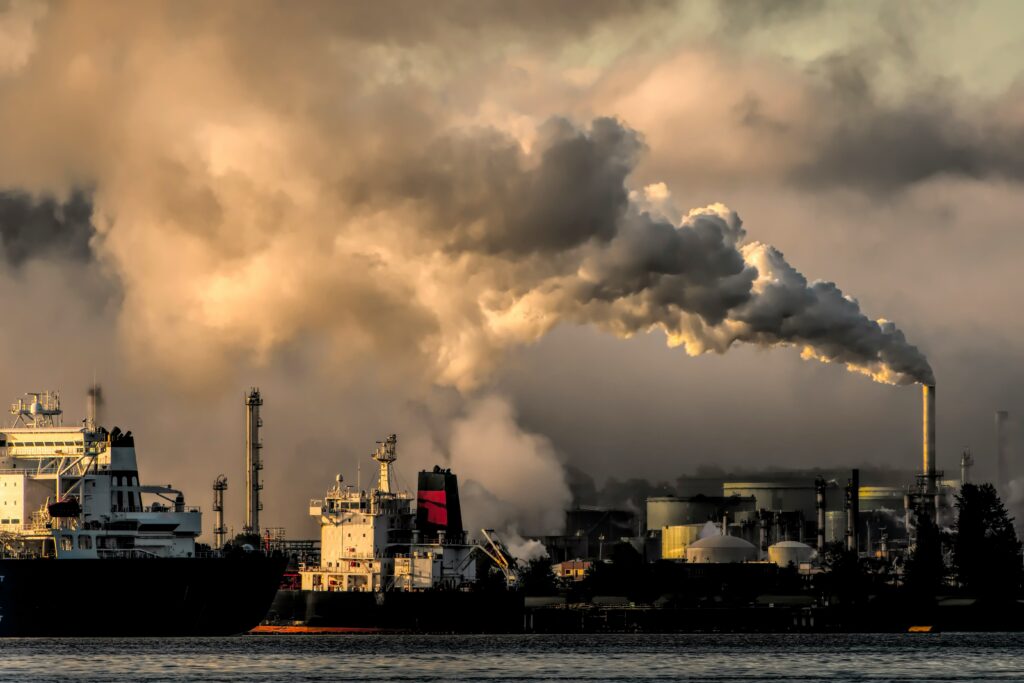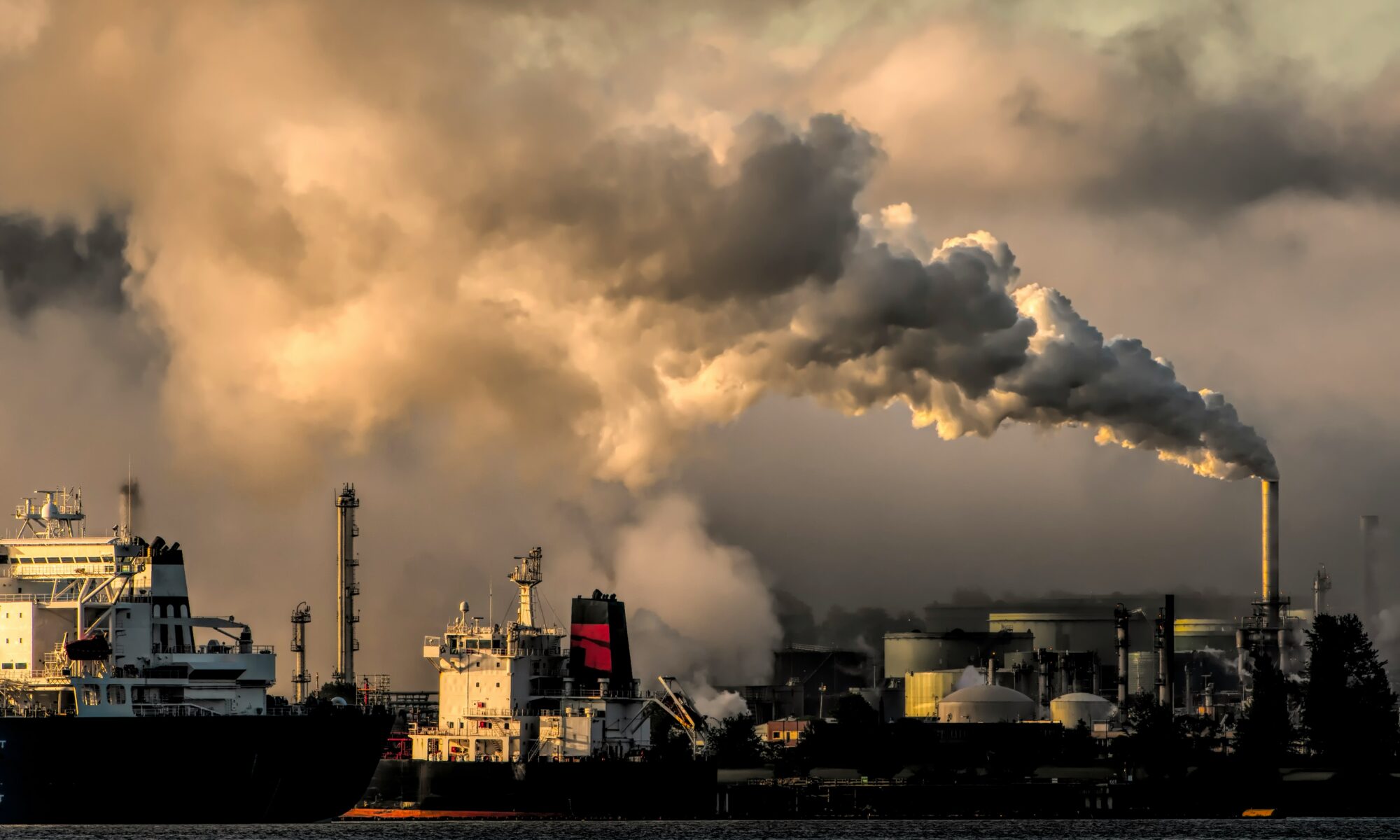
Debunking EPA Administrator Lee Zeldin’s Claims of the Economic Harms of Emission Regulations
By Max Oechsner
The current American administration has been canceling climate change initiatives since its first day in office.[1] The administration has abandoned lawsuits,[2] heavily deregulated,[3] and issued executive orders that repeal environmental initiatives.[4] Most recently, the Environmental Protection Agency (EPA) proposed a rule[5] that would eliminate the 2009 endangerment finding by the EPA.[6] This finding determined that certain greenhouse gas (GHG) emissions hurt human health and the environment. [7] The endangerment finding is the only legal basis for the federal government to regulate GHG emissions.[8] This makes it a fairly special piece of regulation. If the endangerment finding goes away, potentially all emission regulations carried out since 2009 could go with it.[9]
Lee Zeldin, the current administrator of the EPA, has defended this proposal to the media vigorously. In one interview, Zeldin bashed the economic costs of EPA regulations as having been “significant.”[10] In another interview, Zeldin claimed that EPA regulations “were seeking, in some respects, to strangulate out of existence entire sectors of our economy.”[11] He claimed that he inherited a “mess,” which has contributed to the high costs of heating homes.[12] But how true is this rhetoric that he presents to the public in support of the EPA’s proposal?
First, we may look to the EPA proposal’s own Regulatory Impact Analysis (RIA).[13] In the RIA, one major consideration is the change in assumptions related to consumer interests in purchasing electric vehicles.[14] Specifically, they discuss how recent uncertainty in the continuation of tax credits established by the Inflation Reduction Act has reduced projected demand for EVs.[15] The uncertainty comes from Trump’s “One Big Beautiful Bill,” but these projections raise concerns that current initiatives are underperforming. However, this consideration does not go so far as to include evidence of economic strangulation.
Another consideration in the RIA is the EPA’s estimate of future gasoline and diesel prices.[16] They conclude that rollback would cause the price of gasoline to be $1 lower compared to Biden-era projections.[17] This projection, however, is not supported by data.[18] The RIA only references President Donald Trump’s “energy dominance” policies.[19] And still, this consideration does not imply the strangulation of any sectors of the economy. To quote Kathy Harris, director of the Natural Resources Defense Council: “It’s a lot of funny math.”[20]
What about the past fourteen years since the endangerment finding? Has there been a noticeable strangulation of any sector of the economy that the endangerment finding regulates? Gas prices, despite being highly volatile, have not shown much increase or decrease in price since 2009.[21] U.S. field production of crude oil has actually gone up.[22] The automotive industry has seen significant growth, increasing by roughly 20 million jobs.[23] On the clean energy front, automakers have invested nearly $200 billion in U.S. clean vehicle production, supporting almost 195,000 jobs.[24] Clean energy itself has increased, with wind and solar production now providing more electricity than coal.[25] In fact, it appears that the more stable regulatory environment has been compatible with growth, innovation, and clean solutions.[26]
The inverse may also be true: a less stable regulatory environment could lead to worse economic conditions. As previously mentioned, rescinding the endangerment finding will result in important climate change regulations being repealed.[27] This could theoretically lead to patchwork state and local regulations in the absence of federal rules. Twenty-four states and the District of Columbia have already adopted GHG emission targets.[28] It is not difficult to imagine that these states may increase those targets while others do nothing. This would likely negatively affect industry, as shown by some automakers recently signing on to self-regulate to avoid regulatory uncertainty.[29]
Ultimately, the endangerment finding being repealed will be harmful on many levels. Our economy will likely do worse overall, with the clean energy market being hit especially hard.[30] The clean energy market’s pain, in turn, hurts our environment and our communities. Socioeconomically disadvantaged communities bear a particularly disproportionate cost from the use of fossil fuels.[31] Without emission limitations, fossil fuel pollution will continue to hurt those communities, deepening existing health disparities.[32] This is especially true considering EPA regulations are the only real option for abating harm, given the significant hurdles to bringing private suits.[33] As a result, those who could benefit most from clean energy investments—through job creation, affordable energy access, and cleaner air—are left behind.
[1] See, e.g., 90 C.F.R. § 8237 (2025) (revoking several previous executive orders such as 86 C.F.R. 43583 (2021), 86 C.F.R. 51579 (2021), and 86 C.F.R. 7615 (2021)); 90 C.F.R. 8347 (2025); 90 C.F.R. 8353 (2025).
[2] Justice Department Dismisses Suit Against Denka, Delivering on President Trump’s Mandate to End Radical DEI Programs, DOJ (last updated March 7, 2025), https://www.justice.gov/opa/pr/justice-department-dismisses-suit-against-denka-delivering-president-trumps-mandate-end.
[3] Press Release, EPA Launches Biggest Deregulatory Action in U.S. History, EPA (March 12, 2025), https://www.epa.gov/newsreleases/epa-launches-biggest-deregulatory-action-us-history.
[4] See, 90 C.F.R. 8455 (2025); 3 C.F.R. 8353 (2025); 90 C.F.R 8347 (2025).
[5] 40 C.F.R. Parts 85, 86, 600, 1036, 1037, and 1039.
[6] 40 C.F.R. Chapter 1.
[7] Endangerment and Cause or Contribute Findings for Greenhouse Gases Under Section 202(a) of the Clean Air Act, U. S. Env’t Prot. Agency (last updated Feb. 27, 2025), https://www.epa.gov/climate-change/endangerment-and-cause-or-contribute-findings-greenhouse-gases-under-section-202a.
[8] Id.
[9] Id.
[10] ABC News, EPA administrator defends repeal of landmark climate regulation finding, YouTube (Jul 30, 2025), https://www.youtube.com/watch?v=wF2SguLC_YA.
[11] CBS News, EPA Chief Lee Zeldin defends proposed repealing of endangerment finding, YouTube (Aug 1, 2025), https://www.youtube.com/watch?v=YCM_o0ora2E&t=207s.
[12] Id.
[13] Office of Transportation and Air Quality, Reconsideration of 2009 Endangerment Finding and Greenhouse Gas vehicle Standards: Draft Regulatory Impact Analysis, EPA-420-D-25-002 (July 2025).
[14] Id.
[15] Id.
[16] EPA, supra note 11.
[17] Jean Chemnick, Inside EPA’s analysis for killing the endangerment finding, Politico (Sept.10, 2025 6:16 AM), https://www.eenews.net/articles/inside-epas-analysis-for-killing-the-endangerment-finding/.
[18] Id.
[19] Id.
[20] Id.
[21] Average price data (in U.S. dollars), selected items, U.S. Bureau of Lab. Stat., https://www.bls.gov/charts/consumer-price-index/consumer-price-index-average-price-data.htm.
[22] Petroleum & Other Liquids, U.S. Energy Info. Admin., (last updated Aug. 2025) https://www.eia.gov/dnav/pet/hist/leafhandler.ashx.
[23] Industry and occupational employment projections overview and highlights, 2023–33, U.S. Bureau of Lab. Stat. (Nov. 2024), https://www.bls.gov/opub/mlr/2024/article/industry-and-occupational-employment-projections-overview-and-highlights-2023-33.htm.
[24] Supra note 22.
[25] In 2024, the United States produced more energy than ever before, US Energy Info. Admin. (Oct. 16, 2025), https://www.eia.gov/todayinenergy/detail.php.
[26] Sean Hackett, Bad for business: The Trump Administration’s attack on EPA’s endangerment finding, Env’t Def. Fund, (May 6, 2025) https://business.edf.org/insights/bad-for-business-the-trump-administrations-attack-on-epas-endangerment-finding/.
[27] Ctr. for Biological Diversity v. EPA, 722 F.3d 401, 404 (D.C. Cir. 2013).
[28] State Climate Policy Maps, Ctr. for Climate and Energy Sol. (last visited Oct. 6, 2025), https://www.c2es.org/content/state-climate-policy/.
[29] Joseph DeQuarto, Automakers Prefer Self-Regulation to Regulatory Uncertainty, The Regulatory R., (Sept. 19, 2019)
[30] See supra notes 21–29.
[31] See Aneesh Patnaik, et. al, Racial Disparities and Climate Change, Princeton Student Climate Initiative, (Aug. 15, 2020) https://psci.princeton.edu/tips/2020/8/15/racial-disparities-and-climate-change.
[32] Id.
[33] See Native Village of Kivalina v. ExxonMobil Corp., 696 F.3d 849, 858 (9th Cir. 2012) (holding that the displacement doctrine precludes private nuisance suits).

